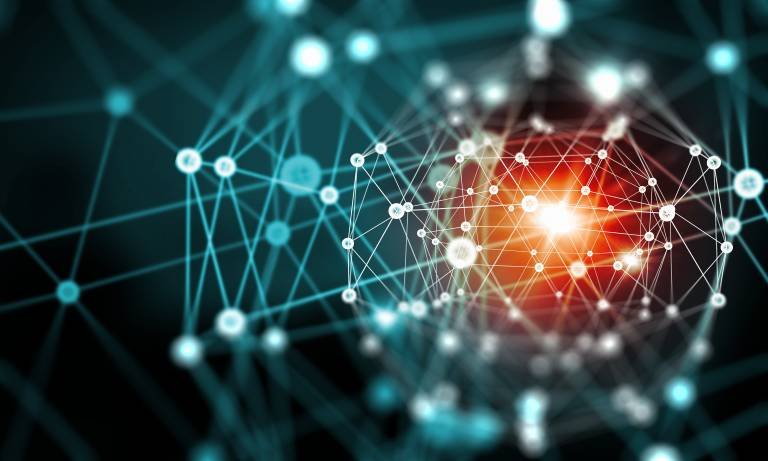PROJECTS
Many-Body Statistical Properties on Digital Quantum Computers
-
While scientists are working on developing large and dependable quantum computers, there is still a dearth of comprehensive understanding of how quantum computers can be utilized. Quantum algorithms have various practical applications, and one such category that is closely associated with physics is Quantum simulation. This field holds immense potential to transform our comprehension of and ability to tackle complex problems in physics, chemistry, and materials science. We are keen on exploring how quantum simulation can aid in computing statistical properties using the digital quantum computers already available today.
Quantum
computing for drug
discovery
-
Quantum computing can potentially alleviate some of the most important bottlenecks in classical simulation algorithms (such as solving the Schrödinger equation in an exponentially growing Hilbert space). These quantum computers suffer from their own problems however, with limited shot availability, gate noise etc. Many of these options can be circumvented using Informationally Complete Positive Operator Value Measures (IC-POVMs) to reconstruct expectation values of interest without the need for full quantum state tomography. This project will focus on how to integrate these POVM methods with current state of the art classical simulation algorithms.
mappings for chemistry on near-term quantum computers
-
Fermion-to-qubit mappings are an essential first step in simulating indistinguishable electrons on the distinguishable qubits of quantum computers and consequently are ubiquitous in quantum chemistry and material sciences. Traditional mappings are rigid and lack flexibility for shrewd applications to limited connectivity quantum hardware. My doctoral work aims to develop understanding of theoretical aspects of mappings, and making a quantum advantage in chemistry feasible by effectively application of these mappings.
Counterdiabaticity-assisted ground state preparation for fermionic systems
-
Throughout the last couple of years experimental researchers have made great strides in developing larger and better quantum digital computers. Although their advantage in comparison to classical computers has been proven for a select set of problems, there are still many open questions about their utility for physics, chemistry, and other natural sciences. One of the most interesting and practically relevant problems in chemistry is finding the ground states of molecules and we are exploring heuristic methods based on shortcuts to adiabaticity.
APproximate Quantum Compilation and Quantum Simulation
-
Compilation of unitary matrices for use in current noisy and connectivity-limited quantum computers is an important enabler for testing and proving quantum advantage. The key problem is how to generate a circuit that can be implemented on current hardware, which can be run respecting fidelity and coherence requirements, that is the closest as possible to the unitary that we would like to implement and simulate.





